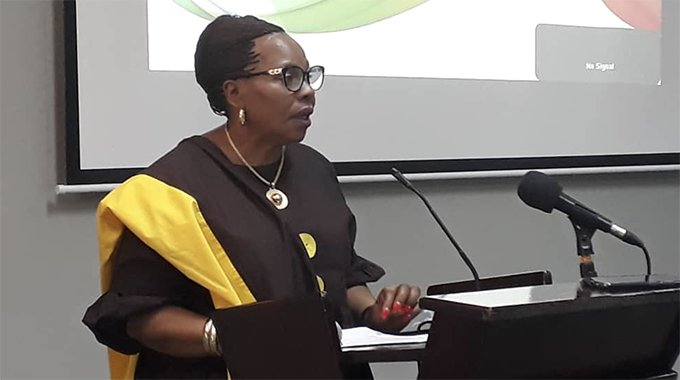Unsafe abortions totalling almost 70 000per year have contributed significantly to Zimbabwe’s high maternal deaths, making the subject a critical issue in reproductive health.
While the subject of unsafe abortions was previously a deep secret and taboo, health stake-holders and women rights defenders are now breaking the silence and pointing out the needless deaths of women and young girls who lose their lives due to clandestine abortions undertaken by untrained people.
Director for WAG Edinah Masiyiwa said the country should speak loudly and boldly about the abortion issue.
“We need to start talking about this and not keep quiet when women and girls are dying from unsafe abortions,” she said.
But the journey to accessing safe abortion has been in motion for a couple of years now.
Zimbabwean laws only permit termination of pregnancy under very limited conditions.
This has resulted in widespread backyard abortions which leave many women maimed or even dead.
The discussion WAG led over the past three years in Bulawayo, Gweru and Masvingo has been on abortion stigma, the legislation and also access to post abortal care.
Women’s Action Group (WAG) is one of the proponents for safe abortion in partnership with Safe Abortion Action Fund (SAAF)
The issues
Illegal abortion is not a new phenomenon in Zimbabwe but has become a huge problem with data showing that a total of 66,800 abortions were recorded in 2016 (SOURCE). Bulk of these were clandestine, unsafe, and mostly affecting poor women.
According to the Ministry of Health and Child Care the deaths from unsafe abortions account for a third of the maternal deaths (651 deaths per 100,000 live births) one of the highest in the world.
Joyce Mananzva a community member from Gweru says initially it was a tough call.
“The communities were rigid, judgemental and women were afraid to speak about abortion issues and experiences.”
Mananzva said those against safe abortion were quite moralistic.
“Many would quote the Bible”
But through awareness raising, the walls started falling.
“We are now better informed about abortion and we continue to work hard towards changing our perception,” she said.
The law
Besides the issue of stigma there have been concerns around the Termination of Pregnancy Act (Top) which is fraught with many shortfalls.
Under the act, abortion is only permissible if the pregnancy is a result of rape, incest or where the mother’s/baby’s life is under threat but stakeholders have been advocating for broadening of the Termination of Pregnancy Act to include other circumstances and chronic conditions.
In Zimbabwe, Illegal abortions are still tried under the Criminal Law (Codification and Reform) Act which criminalises the woman.
Also of concern are the ambiguities of the act.
Explaining the gaps and challenges of the Act, Abigail Matsvai from the Zimbabwe Lawyers Association (ZWLA) said the law should respond to the current settings.
“There are a lot of gaps within the Act and this has made it difficult even for those that qualify to access services,”
“Accessibility can be cumbersome and ambiguous. Also issues like marital rape are not included in the act and yet they exist,” she said.
Matsvai said the process of accessing legal abortion was riddled with inconsistencies.
“Some of the challenges arise from demands of the act that there should be at least two doctors and depending on the area some places do not have that luxury,” she said.
Following many discussions with legislators, some of them spear-headed by WAG there are now calls for the reviewing of the out dated law.
“As a country we are now in possession of credible statistics on the incidence of abortion through the Guttmacher study that was conducted,” said Debra Mwase from Katswe Sistahood.
She however said in terms of traction on the legislation side not much has happened as the discourse has been marred by religious and moral overtones that ignore the public health perspective of the issue.
Post abortal care
While government and stakeholders have made progress in availing post abortal care to any woman needing it, of greatest concern is the cost of the process.
“We should advocate for safe abortion, its way cheaper than post abortal care,” said legislator Ruth Labode.
While there are still many sticky issues, the ice has been broken and Zimbabwe is on the way to finding lasting solutions to the scourge of backyard, unsafe abortions.
– HERALD


